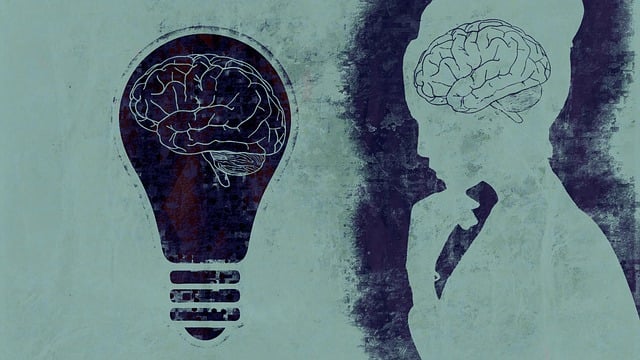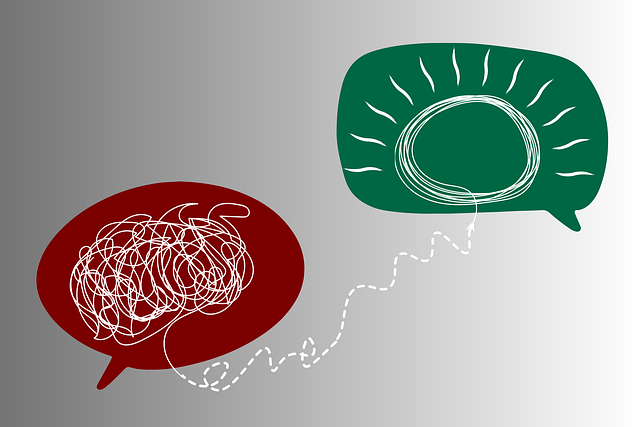Denver dissociative disorder therapy focuses on empowering individuals with coping skills for intense emotions and traumatic experiences. Through exercises in self-awareness, trauma support, mental wellness coaching, and mindfulness techniques, patients gain resilience and improved mental wellness. Developing emotional intelligence, stress management, and engaging in confidence-boosting activities are key components to navigating dissociative disorders. By incorporating these skills into daily routines and leveraging Denver's resources, individuals transform their lives, gaining stability, and reducing dissociative episodes.
Denver dissociative disorder therapy emphasizes coping skills development as a cornerstone of treatment. This article delves into the significance of these skills, offering insights that cater specifically to Denver residents navigating this complex condition. We explore effective strategies for coping mechanisms, providing practical guidance on integrating them into daily life. Understanding and mastering these techniques can empower individuals to manage symptoms, enhance well-being, and lead more fulfilling lives in Denver and beyond.
- Understanding Coping Skills and Their Significance in Denver Dissociative Disorder Therapy
- Strategies for Developing Effective Coping Mechanisms
- Integrating Coping Skills into Daily Life: A Practical Guide for Denver Residents with Dissociative Disorders
Understanding Coping Skills and Their Significance in Denver Dissociative Disorder Therapy

Coping skills are essential tools for individuals navigating complex mental health challenges, particularly those with dissociative disorders. In Denver Dissociative Disorder Therapy, understanding and developing effective coping strategies is a cornerstone of treatment. These skills empower individuals to manage intense emotions, reduce distress, and promote self-regulation in the face of traumatic experiences or dissociative episodes.
Through Self-Awareness Exercises and Trauma Support Services, patients can learn to recognize their emotional states and triggers. Mental Wellness Coaching Programs Development offers structured approaches to help individuals develop healthy coping mechanisms. This includes teaching mindfulness techniques, stress management strategies, and cognitive reframing—all aimed at enhancing resilience and overall mental wellness. By integrating these skills into daily life, individuals with dissociative disorders can improve their ability to cope with symptoms and lead more fulfilling lives in Denver and beyond.
Strategies for Developing Effective Coping Mechanisms

Developing effective coping mechanisms is a crucial aspect of mental well-being, especially for individuals navigating challenges related to dissociative disorder therapy in Denver or managing various forms of mental illness. One of the key strategies involves cultivating emotional intelligence—the ability to recognize and understand emotions, both within oneself and others. This heightened self-awareness can help individuals make sense of their feelings, identify triggers, and respond adaptively rather than reacting impulsively.
Emotional intelligence enables better stress management, which is essential for maintaining mental health. Techniques such as mindfulness meditation, deep breathing exercises, and progressive muscle relaxation can empower individuals to detach from overwhelming emotions and gain a sense of control. Additionally, engaging in confidence-boosting activities, whether through creative pursuits, physical exercise, or social interactions, can contribute to a positive self-image and resilience, thereby reinforcing the development of robust coping strategies. Mental illness stigma reduction efforts also play a role, as challenging societal perceptions empowers individuals to seek help without fear of judgment, fostering an environment conducive to healing and growth.
Integrating Coping Skills into Daily Life: A Practical Guide for Denver Residents with Dissociative Disorders

Incorporating coping skills into daily routines is a transformative process for individuals living with dissociative disorders in Denver. This urban center offers a unique blend of resources and support systems tailored to their specific needs. The journey begins with understanding that managing dissociative symptoms is an ongoing practice, not a one-time fix. A practical guide for Denver residents suggests starting with identifying triggers and developing personalized strategies. For instance, establishing a structured daily routine can provide a sense of stability, reducing the frequency and intensity of dissociative episodes.
Engaging in mental health education programs designed to enhance emotional intelligence is another powerful tool. These programs empower individuals with self-awareness and coping mechanisms, enabling them to navigate their conditions effectively. Healthcare provider cultural competency training is also vital, ensuring that professionals understand the unique challenges faced by Denver residents with dissociative disorders. By combining these initiatives with individual therapy, support groups, and community resources, individuals can build a robust toolkit for managing their symptoms and improving overall well-being, thereby transforming their lives and embracing a more fulfilling existence in their vibrant city.
In the context of Denver dissociative disorder therapy, developing robust coping skills is a transformative journey. By understanding the significance of these skills and employing effective strategies, individuals can navigate their challenges with resilience. Integrating coping mechanisms into daily life allows for a sense of control and improved overall well-being among Denver residents facing dissociative disorders. This practical guide has equipped readers with tools to enhance their coping abilities, ultimately fostering a more balanced and fulfilling life.














